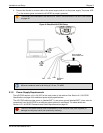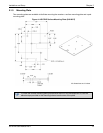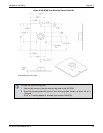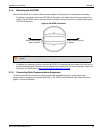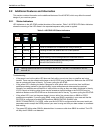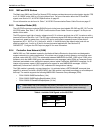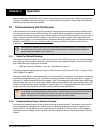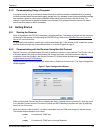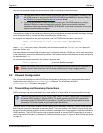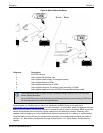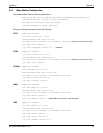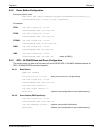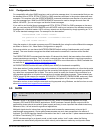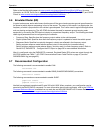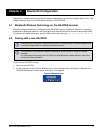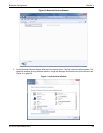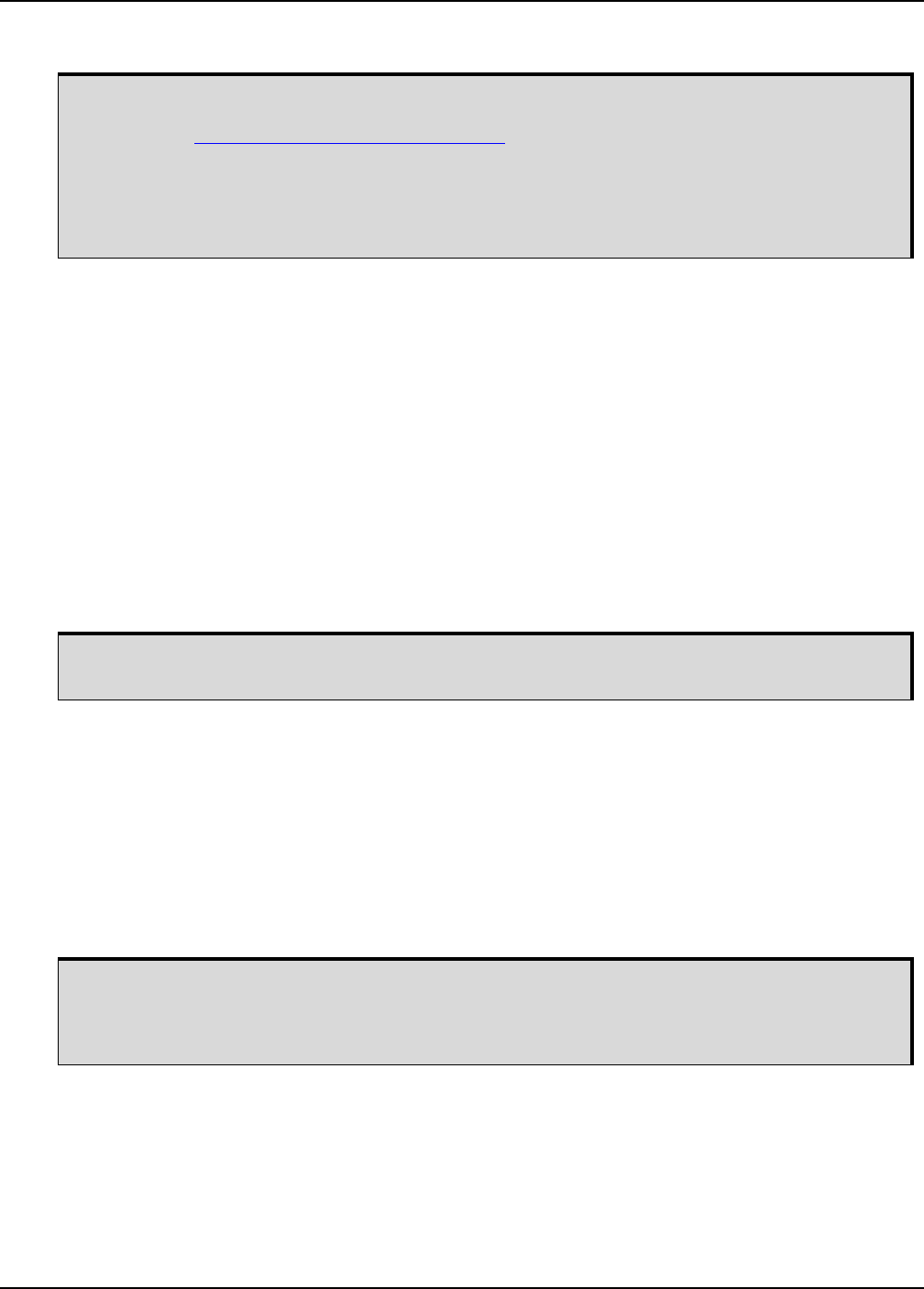
Operation Chapter 3
AG-STAR User Manual Rev 2 21
Any of these prompts indicate that the receiver is ready and waiting for command input.
Commands are typed at the interfacing computing device’s keyboard and executed after sending a carriage
return character which is usually the same as pressing the <Enter> key.
An example of a response to an input command is the FIX POSITION command. It can be as:
[COM2] FIX POSITION 51.11635 -114.0383 1048.2 [carriage return]
<OK
where [COM2] is the port prompt, followed by the command entered and [carriage return] is a prompt to
press the <Enter> key.
The example above illustrates the command input to the base receiver’s COM2 port, which sets the position
of the base station receiver for differential operation. Confirmation that the command was actually accepted is
the appearance of <OK.
If a command is entered incorrectly, the receiver responds with:
<Invalid Message ID (or a more detailed message)
3.3 Channel Configuration
The 14 channels available on the AG-STAR are configured by selecting one of eight predefined channel
configuration sets using the SELECTCHANCONFIG command. For information about the
SELECTCHANCONFIG command, see page 57.
3.4 Transmitting and Receiving Corrections
DGPS corrections can be transmitted from a base station to a rover station to improve position accuracy.
The base station is the GNSS receiver, which is acting as the stationary reference. It has a known position
and transmits correction messages to the rover station. The rover station is the GNSS receiver which does
not know its exact position and can be sent correction messages from a base station to calculate differential
GNSS positions. The AG-STAR can be used as a base receiver to transmit DGPS corrections or a rover to
receive the same corrections. An example of a differential setup is given in Figure 8, Basic Differential Setup
on page 22.
1. You may also have to wait for output from receiver self tests. For example, on start-up, the
AG-STAR receiver is set to log the RXSTATUSEVENTA log ONNEW on all ports. Refer to
the OEMStar Firmware Reference Manual
for more details.
2. If you find that NovAtel Connect is unable to locate your AG-STAR receiver, try using a
different COM port to communicate to the receiver. Once communication has been
established, issue the command FRESET STANDARD. You should now be able to use your
original communication port again.
Ensure the Control Panel Power Settings on your computer are not set to go into Hibernate or
Standby modes. Data will be lost if one of these modes occurs during a logging session.
The AG-STAR can receive RTCM, RTCA, CMR, CMR+, RTCM 2.3 and RTCM 3.0 corrections
to resolve DGPS solutions. With the DGPS_TX model upgrade, the AG-STAR can transmit
non-carrier phase RTCM and RTCA corrections. Contact your local NovAtel dealer for more
information. To locate a dealer in your area contact NovAtel Inc.



